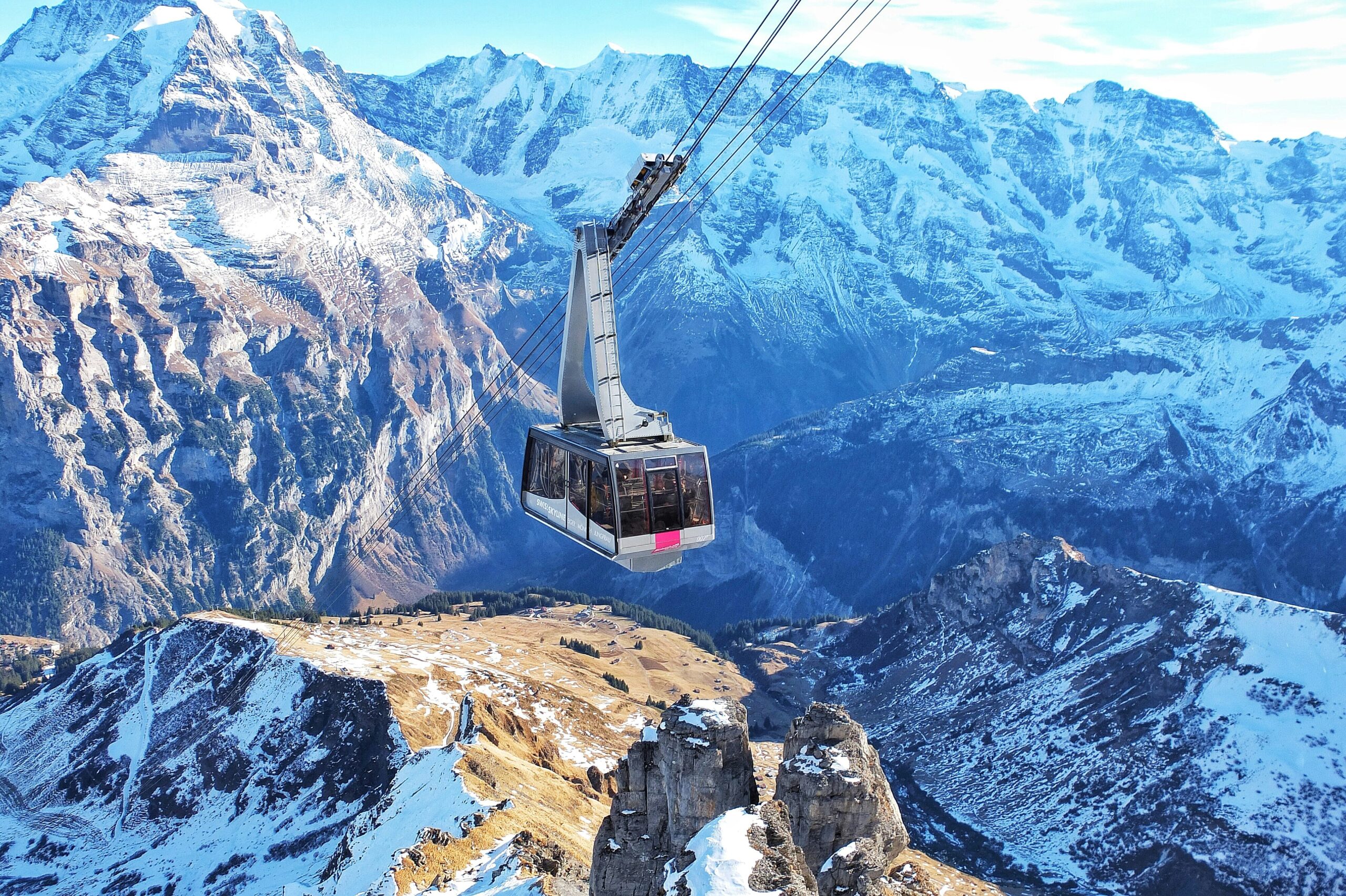The ultimate Switzerland travel guide! Including all the necessary traveling to Switzerland tips, such as where to go, when to go, how to get around, what to eat, and how to travel on a budget.
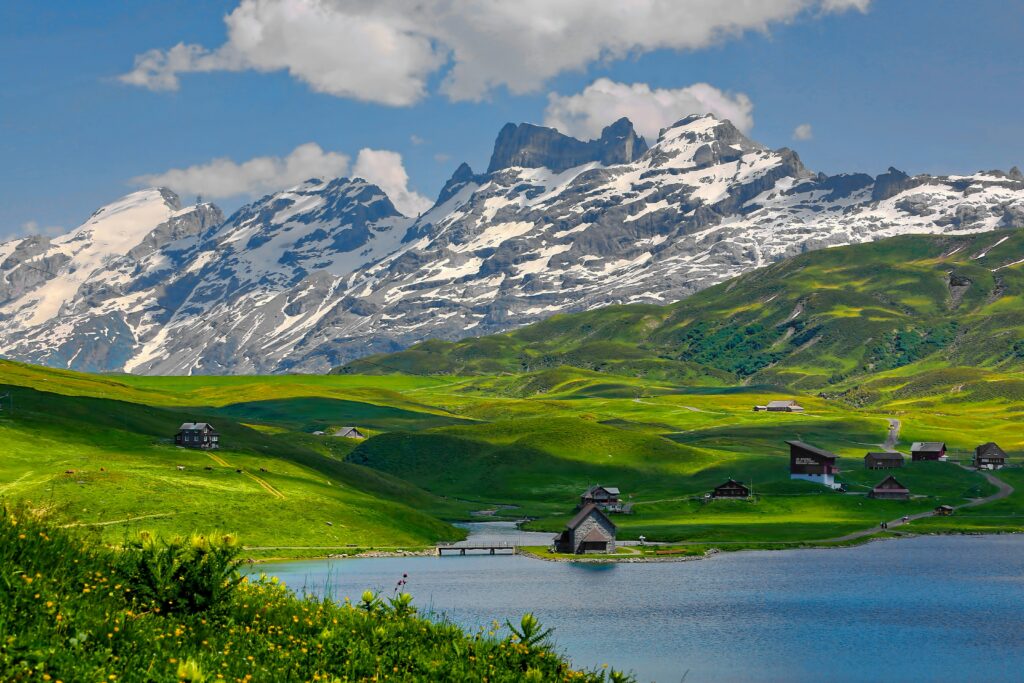
When to visit Switzerland
Switzerland is a year round destination, each season offering its own unique charm. If you’re considering Switzerland travel, the best times to visit depend on your interests.
Winter
Winter, from December to February, is perfect for skiing enthusiasts. The Swiss Alps transform into a snowy paradise, attracting visitors to world renowned resorts like Zermatt and St. Moritz. Moreover, the Christmas markets in cities such as Zurich and Lucerne add a festive touch that’s hard to resist.
Spring
Springtime, particularly from March to May, brings blooming flowers and milder weather. It’s an excellent time for hiking and exploring smaller towns without the summer crowds. Attractions like Lake Geneva and the Interlaken region begin to come alive with vibrant colors.
Summer
For those who enjoy outdoor activities, summer (June to August) is ideal for hiking, cycling, and sightseeing. The days are long and warm, making it perfect for exploring stunning locations such as Jungfrau Region or the picturesque villages along Lake Como.
Autumn
Autumn (September to November) offers breathtaking fall foliage and fewer tourists. This season is also great for wine tasting in regions like Lavaux or enjoying local harvest festivals. Each time of year has something special to offer plan your trip accordingly.
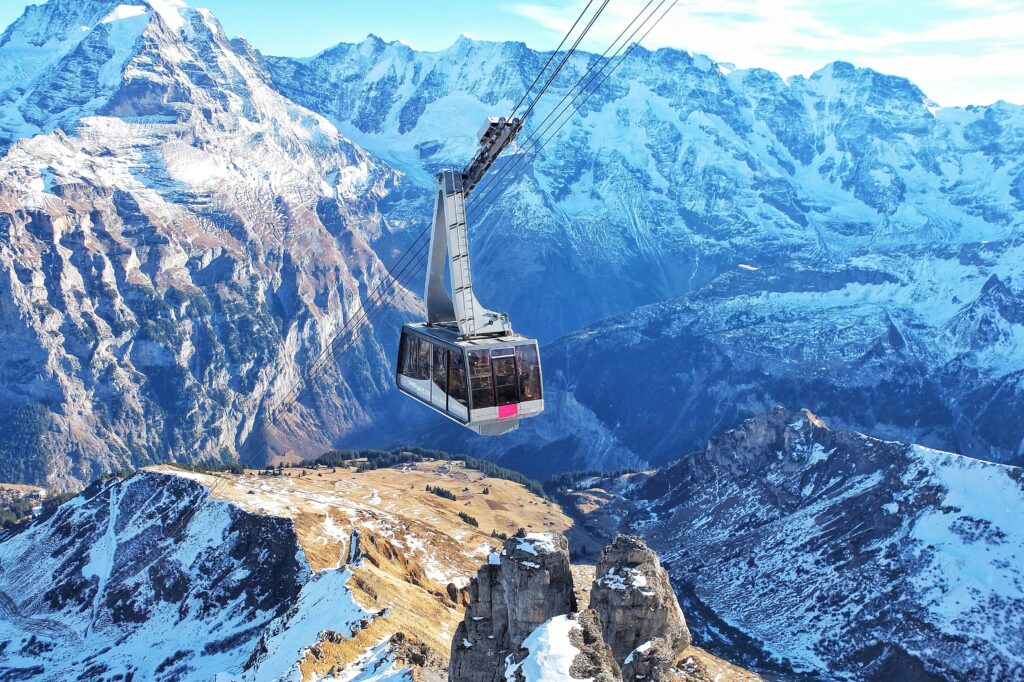
How long to go?
When planning a trip to Switzerland, one of the key questions travelers often ask is, How long should I stay? The answer can vary based on personal interests and travel goals.
For a well rounded experience, consider spending at least seven to ten days. This duration allows you to explore iconic cities like Zurich and Geneva, while also enjoying the breathtaking landscapes of the Swiss Alps.
If you’re keen on hiking or skiing, an additional few days in resort towns like Zermatt or Interlaken will enhance your adventure. Don’t forget to factor in time for cultural experiences; visiting local markets or museums can give you deeper insight into Swiss traditions.
Traveling through Switzerland is relatively easy with its efficient train system, allowing you to maximize your itinerary without feeling rushed. Ultimately, lengthening your stay by just a couple of days can transform a good trip into a great one.
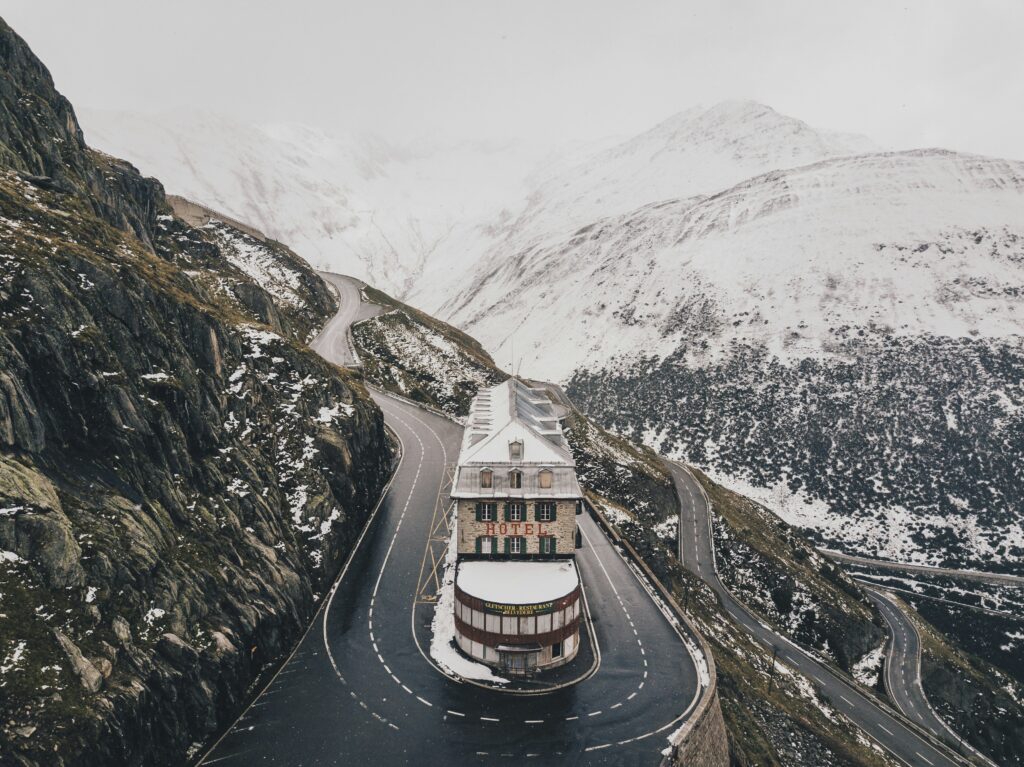
Where to go in Switzerland?
When planning a trip to Switzerland, you’ll discover a wealth of breathtaking destinations to explore. Nestled in the heart of Europe, this picturesque country is renowned for its stunning landscapes, charming villages, and rich culture.
Lucerne
One must visit location is Lucerne, a city that beautifully combines medieval architecture with stunning mountain views. Don’t miss walking across the iconic Chapel Bridge or taking a boat ride on Lake Lucerne.
Swiss Alps
For those seeking adventure, the Swiss Alps are a playground for outdoor enthusiasts. Whether you’re skiing in winter or hiking during the summer months, the majestic peaks provide unforgettable experiences year round.
Interlaken
Another highlight is Interlaken, where you can immerse yourself in adrenaline-pumping activities like paragliding or canyoning. Its central location makes it an excellent base for exploring nearby Jungfraujoch the Top of Europe offering breathtaking views from one of the continent’s highest train stations.
Zurich
Make sure to visit Zurich, Switzerland’s largest city. It boasts vibrant nightlife, delightful cafes, and a captivating blend of modernity and tradition along its beautiful lakefront.
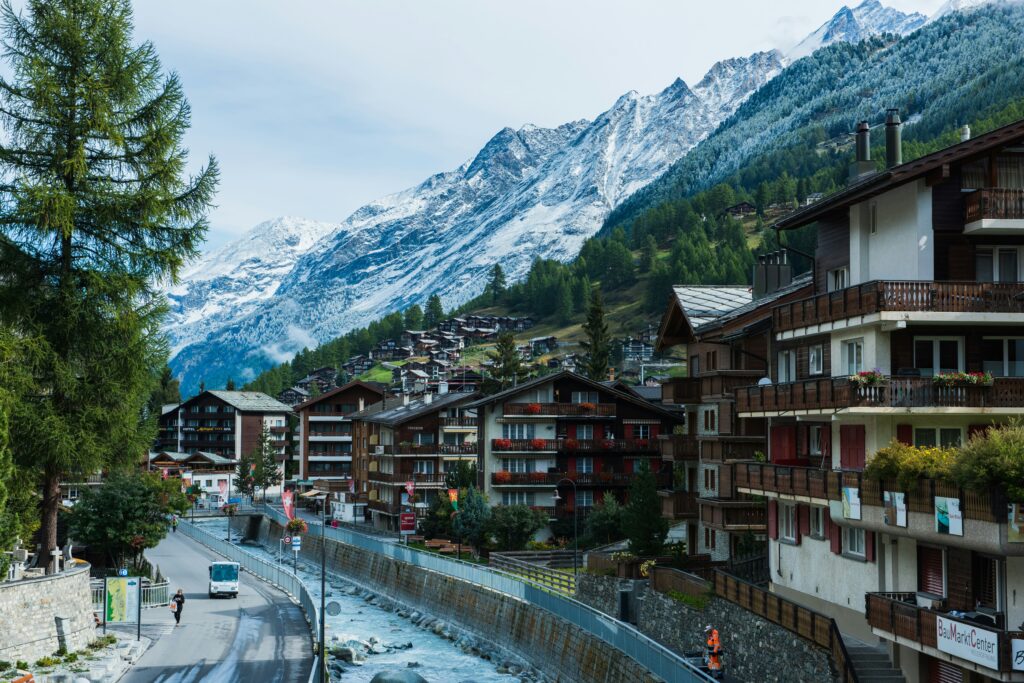
Brief summary of Swiss history
Switzerland boasts a rich and complex history that dates back to the early medieval period. The region was originally inhabited by various Celtic tribes before becoming part of the Roman Empire in 15 BC.
In 1291, three cantons Uri, Schwyz, and Nidwalden formed an alliance known as the Swiss Confederation to defend against external threats. This coalition laid the foundations for a united Switzerland, which gradually expanded as other regions joined over the centuries.
Notably, during the Reformation in the 16th century, Switzerland became a center of religious conflict but also intellectual growth, leading to a diverse mix of Protestant and Catholic communities.
Switzerland declared neutrality during both World Wars, allowing it to foster stability and prosperity while much of Europe was engulfed in turmoil. In 1848, a federal constitution was adopted, establishing Switzerland as a modern democracy.
Today, travelers flock to Switzerland not just for its stunning landscapes and charming cities but also to delve into this fascinating history that has shaped its unique identity. From medieval castles to vibrant cultural festivals, there’s much to explore in this beautiful country.
Budget travel recommendations
Switzerland is a pretty expensive country to visit. But it is possible to travel on a budget if you want.
Let’s break down some of the average costs. Keep in mind, prices fluctuate based on season and current events. These are just general averages.
Prices will be listed in the local currency, CHF (Swiss Francs). The conversion of CHF to US Dollars is roughly 1 to 1, so you could read these prices in USD and they would be similar.
Average costs of a:
- Meal in a restaurant: 10-15 CHF for lunch in a cafe or 20-30 CHF for dinner
- Beer in a bar or restaurant: 7 CHF
- Day pass for skiing in the Alps: 60-100 CHF
- Day tour from the city: 70-100 CHF
- Museum ticket: 20 CHF
- Train ride between cities: 20-50 CHF
- Dorm bed in a hostel: 30 CHF per night
- Room in a budget hotel: 80-100 CHF per night
- Room in a luxury hotel: 200 CHF per night or more
So taking all that into account, here is what a daily budget might look like depending on your travel style:
- Daily backpacker budget: 60-90 CHF
- Daily mid-range traveler budget: 150-180 CHF
- Daily luxury traveler budget: 250 CHF or more
Where to stay
When planning your Switzerland travel adventure, choosing the right place to stay can greatly enhance your experience. There’s a wide variety of accommodation options, ranging from charming mountain lodges to luxurious hotels and cozy hostels.
In cities like Zurich and Geneva, you’ll find sleek modern hotels that offer incredible views of Lake Zurich or the Rhone River. For a more authentic feel, consider booking a stay in boutique accommodations located in historic buildings.
If you’re venturing into the Swiss Alps, chalets provide a unique opportunity to fully immerse yourself in the stunning landscapes. Many alpine resorts also offer amenities such as wellness spas and gourmet dining options.
For budget travelers or solo adventurers, hostels are abundant in major towns and can be a great way to meet fellow travelers while saving money. Don’t forget to check out Airbnb for unique stays—like converted barns or eco-friendly lodges—that let you experience local life firsthand.
Ultimately, whether you prioritize luxury, comfort, or affordability, Switzerland has something for everyone. Make sure to book ahead during peak seasons to secure your ideal spot.
Worldpackers work exchanges in Switzerland
Worldpackers offers an exciting way to experience Switzerland through unique work exchange opportunities. This program connects travelers with local hosts who need help in various areas, such as hospitality, farming, or environmental conservation.
When you engage in a work exchange, you can immerse yourself in the Swiss culture while contributing your skills and time. Hosts provide accommodation and meals in return, allowing you to save on travel costs while fully enjoying Switzerland’s breathtaking landscapes.
Imagine waking up to the stunning views of the Swiss Alps or assisting in a traditional cheese making process. Whether you’re helping in a cozy mountain lodge or working on an organic farm, each experience is enriching and memorable.
Navigating the picturesque towns like Lucerne or Interlaken becomes all the more fulfilling when you meet locals and participate in their daily lives. Plus, you’ll make connections with fellow travelers from around the globe who share your passion for adventure.
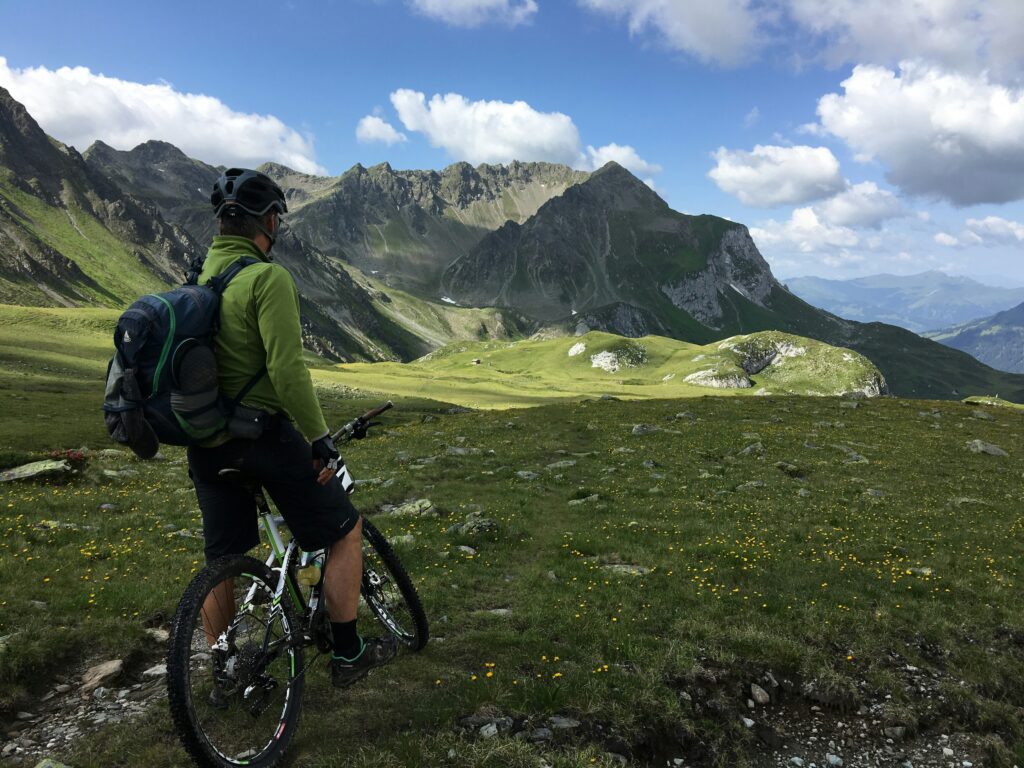
What to eat
When traveling in Switzerland, your culinary adventure is just as exciting as the picturesque landscapes. Swiss cuisine is a delightful blend of influences from its neighboring countries, making it vibrant and diverse.
Fondue
Start your journey with fondue, a classic dish that embodies Swiss hospitality. Melted cheese served in a communal pot allows diners to dip bread cubes into the gooey goodness while enjoying the company of fellow travelers.
Raclette
Don’t miss out on raclette, another cheesy delight that comes with boiled potatoes, pickles, and cured meats. It’s prepared by melting the cheese and scraping it onto your plate – an interactive dining experience!
Rösti
For something heartier, try rösti, a crispy potato pancake often enjoyed as a side dish but hearty enough to be a meal on its own. Paired with seasonal veggies or topped with an egg, it’s sure to please.
Swiss chocolate
If you’re in the mood for something sweet, indulge in Swiss chocolate. With numerous artisan chocolatiers around the country, sampling different flavors becomes an essential part of your trip.
Wash it all down with a glass of local wine or enjoy some exquisite craft beer brewed right in Switzerland. The country’s emphasis on quality ingredients extends to its beverages too.
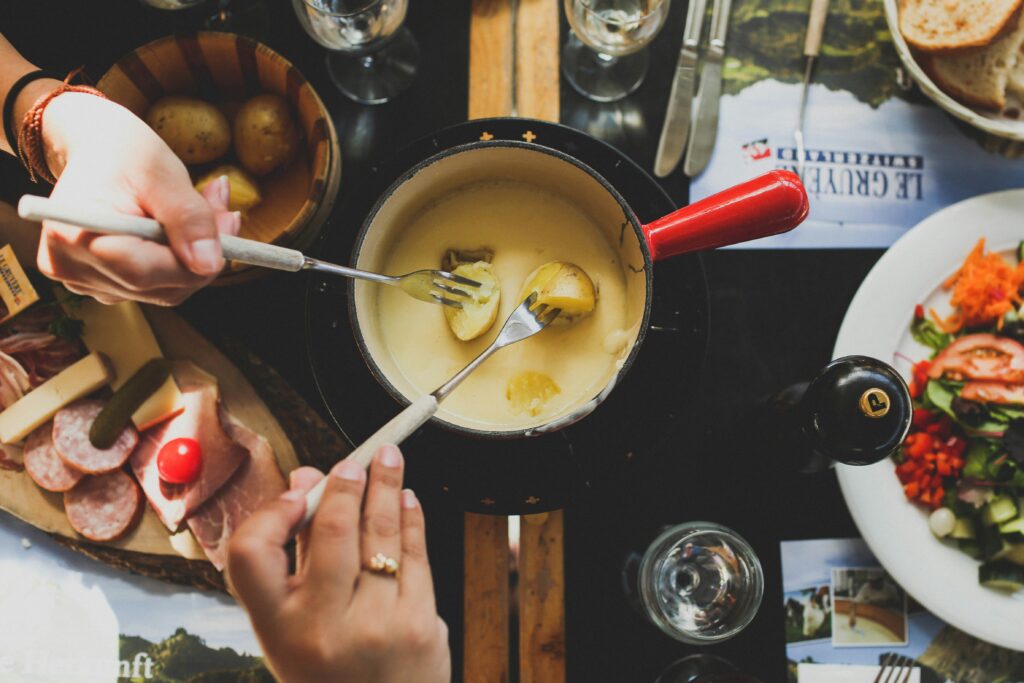
How to get around in Switzerland?
Getting around Switzerland is a breeze, thanks to its efficient and well connected transportation system. The country boasts an extensive network of trains that make traveling between cities not only convenient but also scenic. Trains run frequently, allowing you to hop on board with minimal wait times.
For those who prefer flexibility, renting a car offers the freedom to explore picturesque villages and stunning landscapes at your own pace. However, keep in mind that parking can sometimes be challenging in city centers.
Switzerland is also very pedestrian friendly, particularly in its charming towns like Lucerne and Montreux. You’ll find shops, restaurants, and attractions are often just a short walk away from one another.
If you’re looking for an immersive experience, consider using bicycles or electric scooters available for rent in major cities. This is a great way to enjoy the fresh air while getting some exercise!
Public buses complete the travel options, providing access to remote areas where trains may not reach. Whether you’re exploring mountain trails or cruising through lush valleys, you’ll find that navigating Switzerland is as enjoyable as it is easy.
The best things to do in Switzerland
Switzerland is a treasure trove of stunning landscapes, rich culture, and thrilling adventures. For anyone planning Switzerland travel, the options are endless.
Start your journey in the picturesque city of Lucerne, where you can stroll along the charming lakeside promenade and marvel at the iconic Chapel Bridge. The surrounding mountains offer a perfect backdrop for outdoor activities like hiking or boating.
Don’t miss out on visiting the Swiss Alps, home to some of Europe’s most breathtaking scenery. Whether you choose to ski in winter or hike in summer, the region offers unmatched beauty and adventure.
For chocolate lovers, a visit to a local chocolatier is a must. Dive into workshops to learn about Switzerland’s famous chocolate-making process and indulge in delicious samples.
If you’re interested in history, explore Geneva’s old town and its many museums that showcase Switzerland’s diverse heritage.
Take a scenic train ride on the Glacier Express. This journey connects Zermatt and St. Moritz while showcasing some of the most beautiful panoramic views imaginable.
No matter what your interests are, Switzerland promises an unforgettable experience filled with picturesque vistas and vibrant culture.
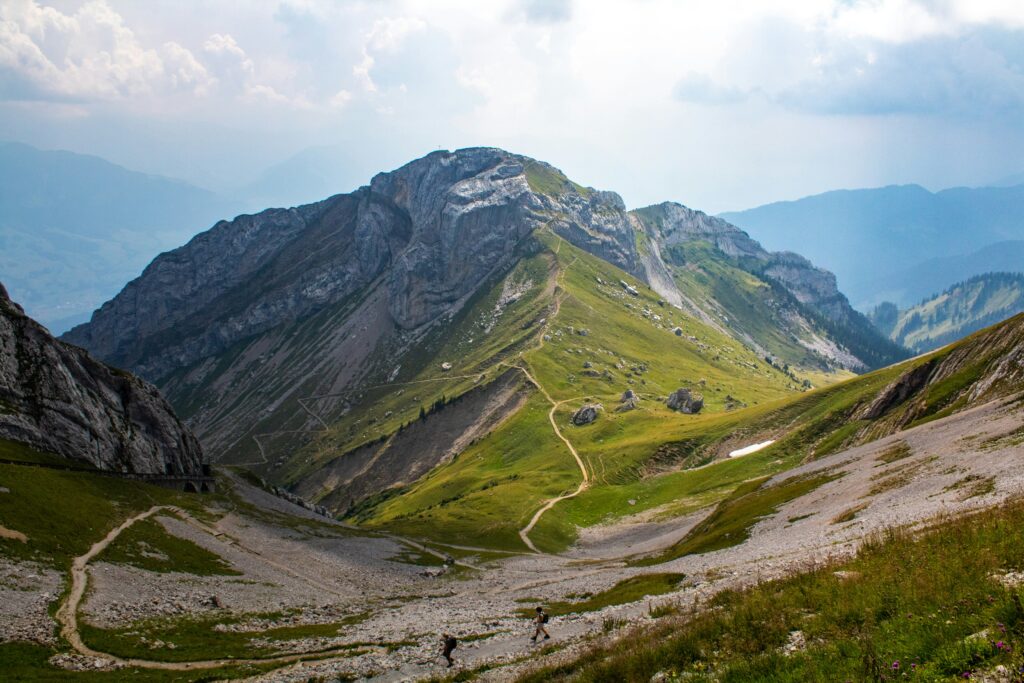
Thanks for reading this Switzerland travel guide.
Latest Articles
10 Best All-inclusive Resorts for Families
Airline Carry-on Luggage Size Restrictions: What You Need to Know
What is Miami Known For? 12 Famous Miami Highlights Beyond The Beach! (2024)

